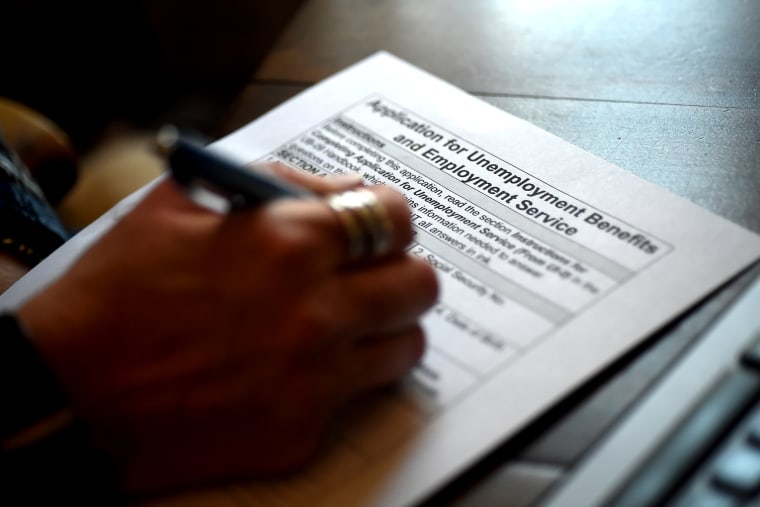As regular readers know, progress on weekly unemployment claims has been hit or miss in recent months, though the new report from the Labor Department pointed in a slightly more encouraging direction.
In the week ending January 16, the advance figure for seasonally adjusted initial claims was 900,000, a decrease of 26,000 from the previous week's revised level. The previous week's level was revised down by 39,000 from 965,000 to 926,000. The 4-week moving average was 848,000, an increase of 23,500 from the previous week's revised average.
It's a bad sign when a report showing 900,000 initial claims is seen as an improvement, but last week's report was the worst the United States has seen since August. As of this morning's report, this is the 44th consecutive week in which the number of Americans filing for unemployment benefits was worse than at any time during the Great Recession.
It's also a reminder, as multiple reports have indicated, that President Joe Biden is inheriting the worst job market of any modern American president.
There's no great mystery as to the cause: the more the nation struggles with an intensifying coronavirus pandemic, the greater the toll it takes on the economy. Indeed, this comes on the heels of a deeply discouraging monthly jobs report, released two weeks ago, showing the economy losing jobs in December.
As we discussed a week ago at this time, there's reason to believe conditions can and will improve. For one thing, vaccines are slowly reaching the public, and vaccination rates are expected to increase considerably in the coming weeks. For another, the latest congressional relief package included unemployment aid, direct-aid checks, and a revised Paycheck Protection Program, each of which should help make a positive difference.
But few seriously believe the economy is on stable footing, and the need for additional congressional investments -- sooner rather than later -- seems obvious.
With this mind, Biden unveiled a $1.9 trillion relief package last week, which would give the economy a dramatic boost. While there was some talk in Democratic circles about trying to get this done by the end of February, in recent days, a new game plan has taken shape, including a smaller bill in the short term, and a more ambitious bill -- approved through the reconciliation process -- in March.
Watch this space.
